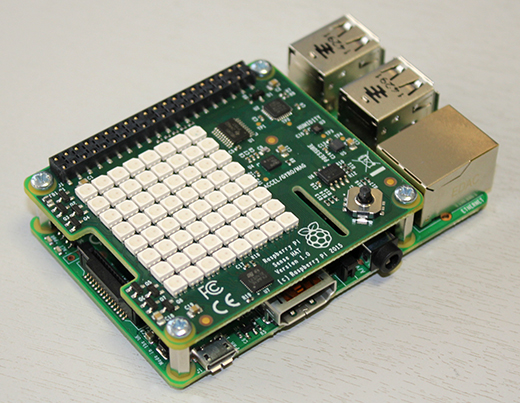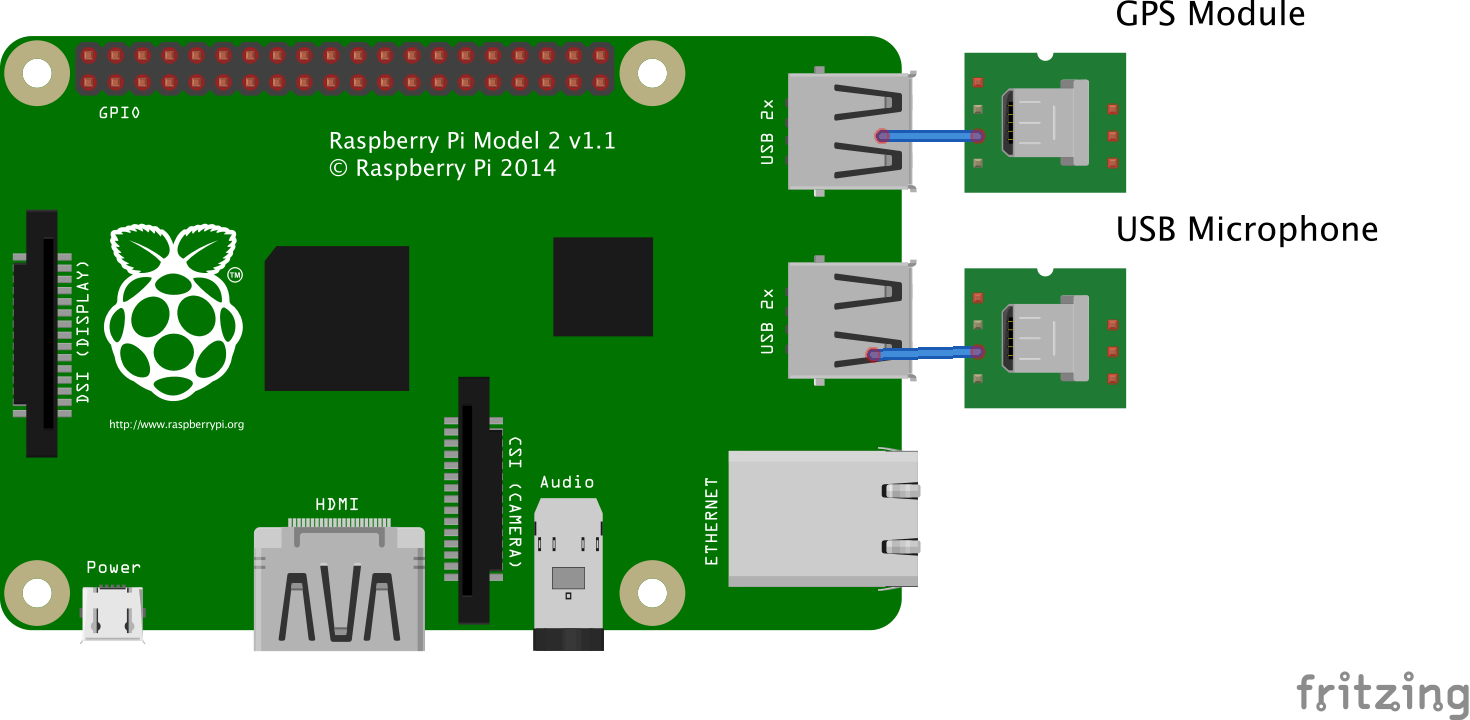#!/usr/bin/env python3
# coding=utf-8
"""Python( 2.7 - 3.4 ) interface to gpsd """
from __future__ import print_function
from datetime import datetime, timedelta
from pytz import timezone
import socket
import select
import time
import sys
import json
__author__ = 'Moe'
__copyright__ = "Copyright 2015 Moe" # Everything learned/adapted from somewhere else.
__license__ = "MIT"
__version__ = "0.1a"
GPSD_PORT = 2947
HOST = "127.0.0.1"
PROTOCOL = 'json'
class GPSDSocket(object):
"""Sole purpose is to establish a socket with gpsd, by which to send commands and receive data.
"""
def __init__(self, host=HOST, port=GPSD_PORT, gpsd_protocol=PROTOCOL, devicepath=None, verbose=False):
self.devicepath_alternate = devicepath
# self.output = {} # TODO: an attribute by itself decision, essentially raw socket JSON unless it's not;-)
self.response = None
self.protocol = gpsd_protocol # What form of data to retrieve from gpsd TODO: can it handle multiple?
self.streamSock = None # Existential
self.verbose = verbose
if host:
self.connect(host, port) # No host/port will fail here
def connect(self, host, port):
"""Connect to a host on a given port. """
for alotta_stuff in socket.getaddrinfo(host, port, 0, socket.SOCK_STREAM):
family, socktype, proto, _canonname, host_port = alotta_stuff
try:
self.streamSock = socket.socket(family, socktype, proto)
self.streamSock.connect(host_port)
self.streamSock.setblocking(False)
if self.verbose:
print('Connecting to gpsd at {0} on port \'{1}\','.format(host, port))
print('and will be watching ', self.protocol, ' protocol')
except OSError as error:
sys.stderr.write('\nGPSDSocket.connect OSError is-->', error)
sys.stderr.write('\nAttempt to connect to a gpsd at {0} on port \'{1}\' failed:\n'.format(host, port))
sys.stderr.write('Please, check your number and dial again.\n')
self.close()
sys.exit(1) # TODO: gpsd existence check and start
finally:
self.watch(gpsd_protocol=self.protocol)
def watch(self, enable=True, gpsd_protocol='json', devicepath=None):
"""watch gpsd in various gpsd_protocols or devices.
Arguments:
self:
enable: (bool) stream data to socket
gpsd_protocol: (str) 'json', 'nmea', 'rare', 'raw', 'scaled', 'split24', or 'pps'
devicepath: option for non-default device path
Returns:
command: (str)
"""
# TODO: add scaled, split24, pps, ais, and rtcm2/3, etc...
# TODO: 'timing' requires special attention, as it is undocumented and lives with dragons
command = '?WATCH={{"enable":true,"{0}":true}}'.format(gpsd_protocol)
if gpsd_protocol == 'human': # human is the only imitation protocol
command = command.replace('human', 'json')
if gpsd_protocol == 'rare': # 1 for a channel, gpsd reports the unprocessed NMEA or AIVDM data stream
command = command.replace('"rare":true', '"raw":1')
if gpsd_protocol == 'raw': # 2 channel that processes binary data, received data verbatim without hex-dumping.
command = command.replace('"raw":true', '"raw",2')
if not enable:
command = command.replace('true', 'false') # sets -all- command values false .
if devicepath:
command = command.replace('}', ',"device":"') + devicepath + '"}' # TODO: can it handle multiple?
return self.send(command)
def send(self, commands):
"""Ship commands to the daemon"""
# session.send("?POLL;") # TODO: Figure a way to work this in.
# The POLL command requests data from the last-seen fixes on all active GPS devices.
# Devices must previously have been activated by ?WATCH to be pollable.
if sys.version_info[0] < 3: # Not less than 3, but 'broken hearted' because
self.streamSock.send(commands) # 2.7 chokes on 'bytes' and 'encoding='
else:
self.streamSock.send(bytes(commands, encoding='utf-8')) # It craps out here when there is no daemon running
# TODO: Add recovery, check gpsd existence, re/start, etc..
def __iter__(self):
"""banana""" # <------- for scale
return self
def next(self, timeout=0):
"""Return empty unless new data is ready for the client. Will sit and wait for timeout seconds"""
try:
(waitin, _waitout, _waiterror) = select.select((self.streamSock,), (), (), timeout)
# poll.register(self.streamSock, POLLIN) # Could be faster than this method, but is it necessary to change?
if not waitin:
return
else:
gpsd_response = self.streamSock.makefile() # was '.makefile(buffering=4096)' In strictly Python3
self.response = gpsd_response.readline() # When does this fail?
return self.response # No, seriously; when does this fail?
except OSError as error:
sys.stderr.write('The readline OSError in GPSDSocket.next is this: ', error)
return # TODO: means to recover from error, except it is an error of unknown etiology or frequency. Good luck.
__next__ = next # Workaround for changes in iterating between Python 2.7 and 3.4
def close(self):
"""turn off stream and close socket"""
if self.streamSock:
self.watch(enable=False)
self.streamSock.close()
self.streamSock = None
return
class Fix(object):
"""Sole purpose is to retrieve JSON Object(s) from GPSDSocket and unpack it into respective
gpsd 'class' dictionaries, TPV, SKY, etc. yielding hours of fun and entertainment.
"""
def __init__(self):
"""Sets of potential data packages from a device through gpsd, as generator of class attribute dictionaries"""
version = {"release",
"proto_major", "proto_minor",
"remote",
"rev"}
tpv = {"alt",
"climb",
"device",
"epc", "epd", "eps", "ept",
"epv", "epx", "epy",
"lat", "lon",
"mode",
"tag",
"time",
"track",
"speed"}
sky = {"satellites",
"gdop", "hdop", "pdop", "tdop",
"vdop", "xdop", "ydop"}
gst = {"alt",
"device",
"lat", "lon",
"major", "minor",
"orient"
"rms",
"time"}
att = {"acc_len", "acc_x", "acc_y", "acc_z",
"depth",
"device",
"dip",
"gyro_x", "gyro_y",
"heading",
"mag_len", "mag_st", "mag_x", "mag_y", "mag_z",
"pitch", "pitch_st",
"roll", "roll_st",
"temperature",
"time",
"yaw", "yaw_st"} # TODO: Check Device flags
pps = {"device",
"clock_sec", "clock_nsec",
"real_sec", "real_nsec"}
device = {"activated",
"bps",
"cycle", "mincycle",
"driver",
"flags",
"native",
"parity",
"path",
"stopbits",
"subtype"} # TODO: Check Device flags
poll = {"active",
"fixes",
"skyviews",
"time"}
devices = {"devices",
"remote"}
# ais = {} # see: http://catb.org/gpsd/AIVDM.html
error = {"message"}
# The thought was a quick repository for stripped down versions, to add/subtract' module data packets'
packages = {"VERSION": version,
"TPV": tpv,
"SKY": sky,
"ERROR": error} # "DEVICES": devices, "GST": gst, etc.
# TODO: Create the full suite of possible JSON objects and a better way for deal with subsets
for package_name, datalist in packages.items():
_emptydict = {key: 'n/a' for (key) in datalist} # There is a case for using None instead of 'n/a'
setattr(self, package_name, _emptydict)
self.SKY['satellites'] = [{'PRN': 'n/a',
'ss': 'n/a',
'el': 'n/a',
'az': 'n/a',
'used': 'n/a'}]
def refresh(self, gpsd_data_package):
"""Sets new socket data as Fix attributes
Arguments:
self (class):
gpsd_data_package (json object):
Returns:
self attribute dictionaries, e.g., self.TPV['lat']
Raises:
AttributeError: 'str' object has no attribute 'keys' when the device falls out of the system
ValueError, KeyError: stray data, should not happen
"""
try: # 'class', a reserved word is popped to allow, if desired, 'setattr(package_name, key, a_package[key])'
fresh_data = json.loads(gpsd_data_package) # error is named "ERROR" the same as the gpsd data package
package_name = fresh_data.pop('class', 'ERROR') # If error, return 'ERROR' except if it happened, it
package = getattr(self, package_name, package_name) # should have been too broken to get to this point.
for key in package.keys(): # Iterate attribute package TODO: It craps out here when device disappears
package[key] = fresh_data.get(key, 'n/a') # that is, update it, and if key is absent in the socket
# response, present --> "key: 'n/a'" instead.'
except AttributeError: # 'str' object has no attribute 'keys' TODO: if returning 'None' is a good idea
print("No Data") # This is frequently indicative of the device falling out of the system
return None
except (ValueError, KeyError) as error: # This should not happen, most likely why it's an exception. But, it
sys.stderr.write('There was a Value/KeyError at GPSDSocket.refresh: ', error,
'\nThis should never happen.') # happened once. But I've no idea aside from it broke.
return None
def satellites_used(self): # Should this be ancillary to this class, or even included?
"""Counts number of satellites use in calculation from total visible satellites
Arguments:
self:
Returns:
total_satellites(int):
used_satellites (int):
"""
total_satellites = 0
used_satellites = 0
for satellites in self.SKY['satellites']:
if satellites['used'] is 'n/a':
return 0, 0
used = satellites['used']
total_satellites += 1
if used:
used_satellites += 1
return total_satellites, used_satellites
def make_datetime(self): # Should this be ancillary to this class, or even included?
"""Creates timezone aware datetime object from gpsd data
Arguments:
self: self.TPV['time'] as a string
Returns:
gps_datetime_object(datetime): Time zone aware datetime object
"""
timeformat = '%Y-%m-%dT%H:%M:%S.000Z' # ISO8601
if 'n/a' not in self.TPV['time']:
gps_datetime_object = datetime.strptime(self.TPV['time'], timeformat).replace(
tzinfo=(timezone(timedelta(0))))
else: # shouldn't break anything, but return wrong Time, when IT, PO, ES, and PT switch to gregorian calendar
gps_datetime_object = datetime.strptime('1582-10-04T12:00:00.000Z', timeformat).replace(
tzinfo=(timezone(timedelta(0))))
return gps_datetime_object
if __name__ == '__main__':
import argparse
parser = argparse.ArgumentParser() # TODO: beautify and idiot-proof makeover to prevent clash from options error
# Defaults from the command line
parser.add_argument('-human', dest='gpsd_protocol', const='human', action='store_const', default='human', help='DEFAULT Human Friendlier ')
parser.add_argument('-host', action='store', dest='host', default='127.0.0.1', help='DEFAULT "127.0.0.1"')
parser.add_argument('-port', action='store', dest='port', default='2947', help='DEFAULT 2947', type=int)
# parser.add_argument('-metric', dest='units', const='metric', action='store_const', default='metric', help='DEFAULT METRIC units')
# parser.add_argument('-ddd', dest='latlon_format', const='ddd', action='store_const', default=None, help='Degree decimal')
# parser.add_argument('-dmm', dest='latlon_format', const='dmm', action='store_const', default=None, help='Degree, Minute decimal')
# parser.add_argument('-dms', dest='latlon_format', const='dms', action='store_const', default=None, help='Degree, Minute, Second decimal')
# Verbose
parser.add_argument("-verbose", action="store_true", default=False, help="increases verbosity, but not that much")
# Alternate devicepath
parser.add_argument('-device', dest='devicepath', action='store', help='alternate devicepath e.g.,"/dev/ttyUSB4"')
parser.add_argument('-json', dest='gpsd_protocol', const='json', action='store_const', help='/* output as JSON objects */')
# parser.add_argument('-nautical', dest='units', const='nautical', action='store_const', help='/* output in NAUTICAL units */')
# parser.add_argument('-imperial', dest='units', const='imperial', action='store_const', help='/* output in IMPERIAL units */')
# Work/storage shed, and heap.
parser.add_argument('-nmea', dest='gpsd_protocol', const='nmea', action='store_const', help='/* output in NMEA */')
parser.add_argument('-rare', dest='gpsd_protocol', const='rare', action='store_const', help='/* output of packets in hex */')
parser.add_argument('-raw', dest='gpsd_protocol', const='raw', action='store_const', help='/* output of raw packets */')
parser.add_argument('-scaled', dest='gpsd_protocol', const='scaled', action='store_const', help='/* scale output to floats */')
parser.add_argument('-timimg', dest='gpsd_protocol', const='timing', action='store_const', help='/* timing information */')
parser.add_argument('-split24', dest='gpsd_protocol', const='split24', action='store_const', help='/* split AIS Type 24s */')
parser.add_argument('-pps', dest='gpsd_protocol', const='pps', action='store_const', help='/* enable PPS JSON */')
args = parser.parse_args()
session = GPSDSocket(args.host, args.port, args.gpsd_protocol, args.devicepath,
args.verbose) # the historical 'session'
fix = Fix()
if args.verbose:
print("verbose is in chatty mode")
print('The command line arguments are: ', args)
try: # TODO: Tidy up for other protocols run on commandline
for socket_response in session:
if socket_response is None:
print('Socket response is: \'None\' Do you know why?')
elif socket_response and args.gpsd_protocol is 'human': # Output for humans because it's the command line.
fix.refresh(socket_response)
print('{:^45}'.format('This gps3 interface is using Python {}.{}.{}'.format(*sys.version_info))) # Flagpole kludge
print('Connected to a gpsd on host {0.host}, port {0.port}.'.format(args))
print()
# print('URL of the remote daemon:{}'.format(fix.VERSION['remote'])) #URL of the remote daemon reporting this version. If empty, this is the version of the local daemon.
print('It reports a device at {}\n'.format(fix.TPV['device']))
print('{:^55}'.format("Iterated Satellite Data"))
for sats in fix.SKY['satellites'][0:10]:
print(' Sat {PRN:->3}: Signal: {ss:>2} {el:>2}:el-az:{az:<3} Used: {used}'.format(**sats))
print(' Using {0[1]} of {0[0]} satellites in view (truncated list) providing \n'.format(fix.satellites_used()))
print('Error estimate - epx:{epx}, epy:{epy}, epv:{epv} in metres'.format(**fix.TPV))
print('Device coordinates- Latitude:{lat:0<11} Longitude: {lon:0<12}'.format(**fix.TPV))
print('Speed: {speed} metres/second tracking {track} degrees from True North'.format(**fix.TPV))
print('Altitude: {} metres; etc. All data is the respective gpsd \'class\'[key]'.format(fix.TPV['alt']))
print('Via: session = GPSDSocket() and fix = Fix() e.g., fix.TPV[\'time\'], yielding')
print(fix.make_datetime(), 'UTC timezone aware Datetime Object derived from that time string')
else:
print('Socket Response is:', socket_response) # Output Nones and other protocols
time.sleep(.9) # to keep from spinning silly, or set GPSDSocket.streamSock.setblocking(False) to True
except KeyboardInterrupt:
session.close()
print("Keyboard interrupt received\nTerminated by user\nGood Bye.\n")
sys.exit(1)
#
# Someday a cleaner Python interface will live here
#
# End











Comments
Please log in or sign up to comment.